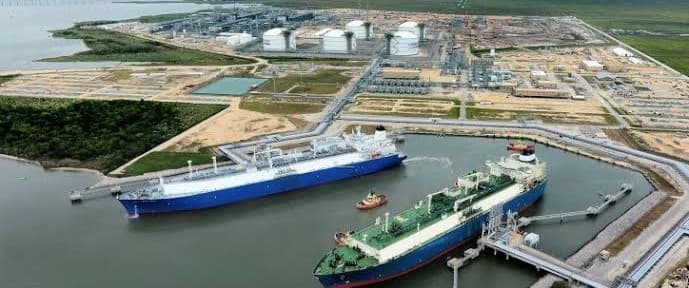
Concerned about energy security, Europe and China are in an intensifying competition to sign long-term supply deals with U.S. LNG developers and exporters.
The race for LNG supply indexed to Henry Hub prices and with flexibility clauses to resell the cargoes if not needed gives buyers certainty about long-term supply and the possibility to send cargoes elsewhere if the market is not as tight as expected.
For sellers, the U.S. LNG developers and exporters, more long-term purchase deals with Europe and Asia mean more chances for projects to contract future volumes from planned export facilities and underpin financing and final investment decisions for a greater number of U.S. LNG export terminals.
“More volumes are good for the market, and with the new deals we will see more LNG export projects being developed,” Sindre Knutsson, partner of gas and LNG research at Rystad Energy, told the Financial Times.
Despite concerns about cost inflation, developers of LNG projects in the United States are set to approve a record-high volume of export capacity this year, driven by rising global LNG demand and increased long-term contracting from customers willing to boost energy security. Related: Saudi Arabia And Iran To Jointly Exploit Oil & Gas Fields
Venture Global LNG has already approved one project this year—it announced in March the FID and successful closing of the $7.8 billion project financing for the second phase of the Plaquemines LNG facility. This, along with Sempra’s Port Arthur LNG Phase 1 project in Jefferson County, Texas, were the two projects approved so far in 2023.
The third one, NextDecade’s Rio Grande LNG project, targets FID in early July, after signing framework agreements with Global Infrastructure Partners (GIP) and TotalEnergies, and selling 16.2 million tons per annum (MTPA) of LNG from Phase 1, or 92% of nameplate capacity, under long-term agreements, sufficient to support the binding debt commitments from these leading lenders and the near-term FID of the 17.61 MTPA Phase 1.
Supermajor TotalEnergies will hold a 16.7% interest in the first phase of the project, and has agreed to purchase 5.4 million MTPA of LNG from Phase 1 for 20 years and has options to purchase LNG from Train 4 and Train 5.
In another major long-term offtake agreement between an energy major and a U.S. LNG exporter, Equinor signed last month a 15-year purchase agreement of around 1.75 million tons of LNG per year from Cheniere, which will double the volumes of LNG that Equinor will export out of Cheniere’s LNG terminals on the U.S. Gulf Coast.
Another deal saw Germany’s state-controlled firm Securing Energy for Europe (Sefe) sign last month a 20-year agreement with Venture Global LNG to import 2.25 million tons of LNG per year from Venture Global’s third project, CP2 LNG, as Europe’s biggest economy is looking to secure gas supply after Russia stopped deliveries.
Long-term LNG contracting has seen a flurry of deals in recent months, including from buyers in Europe, where energy security has taken center stage at the expense of concerns about emissions from natural gas imports.
China is also looking at the U.S., apart from Qatar, to secure long-term LNG supply after last year’s energy crisis put an additional emphasis on Chinese energy security.
Just last week, Cheniere Energy signed a long-term deal with China’s ENN to deliver LNG to the Chinese buyer for more than 20 years—the second deal between Cheniere and ENN.
U.S. LNG exporters are signing deals with other Asian buyers such as Japan, securing further offtake commitments and making the U.S. export projects easier to push through the FID milestone.
Developers of U.S. LNG export facilities could launch $100 billion worth of new plants over the next five years as high prices and the need for energy security create strong momentum for long-term LNG demand and contracts, energy consultancy Wood Mackenzie said in a report earlier this year.
Source: https://oilprice.com/
